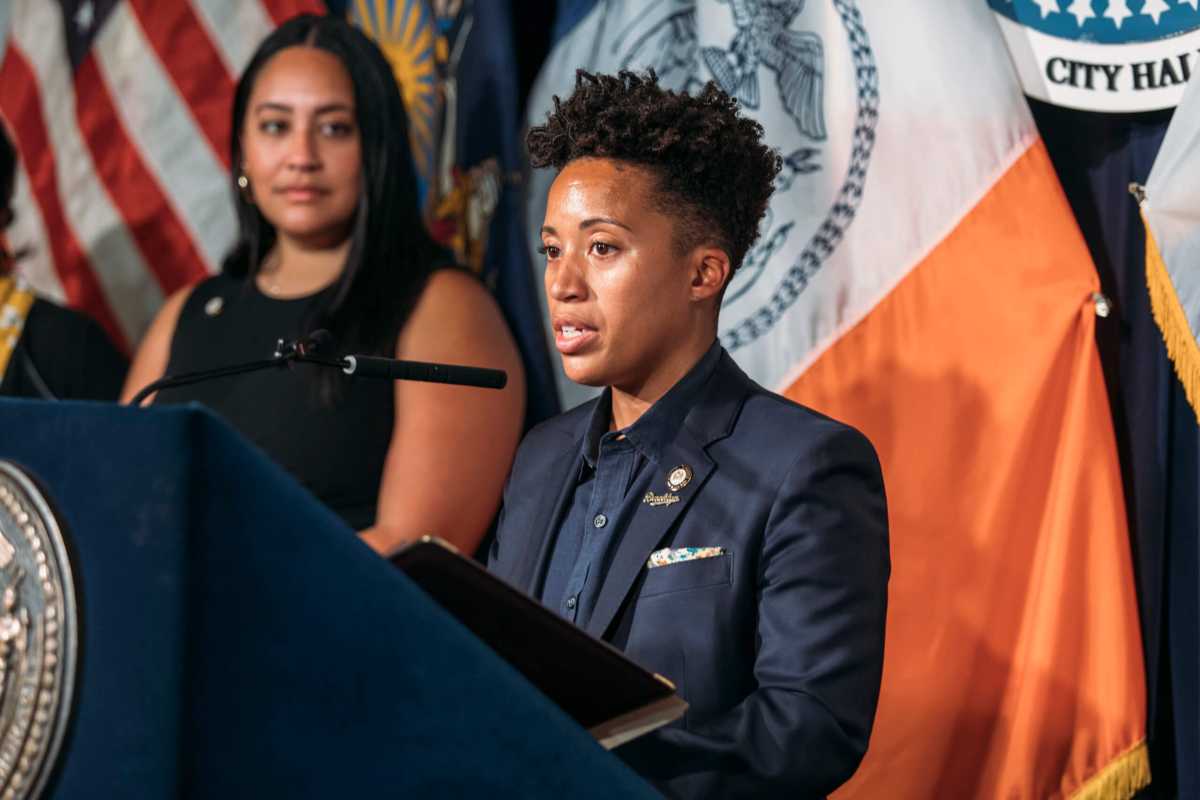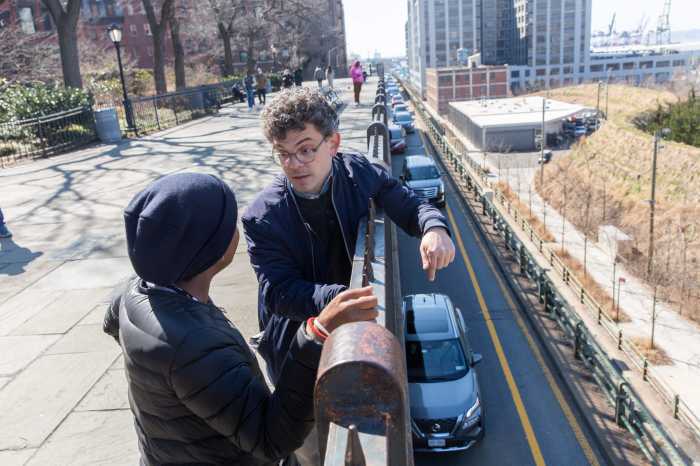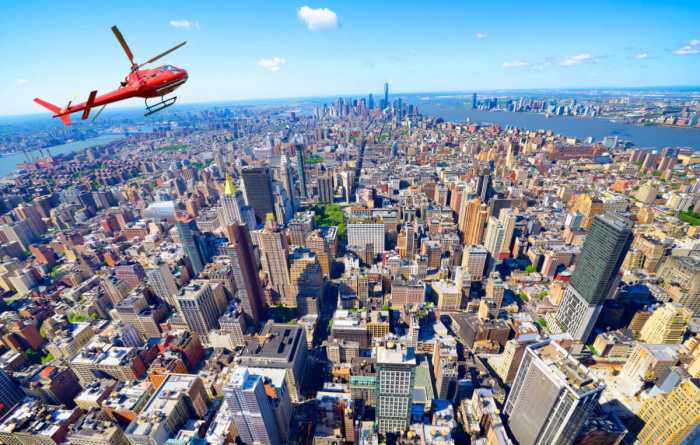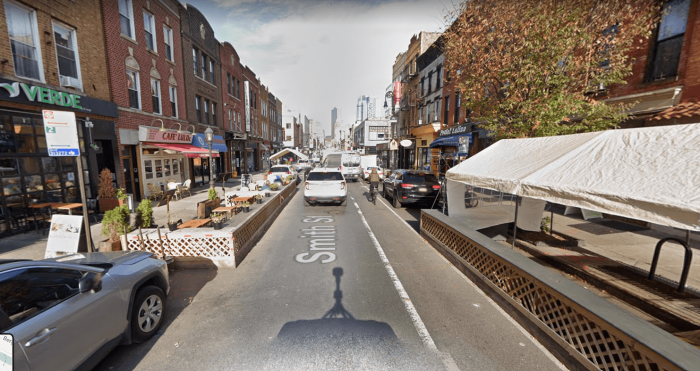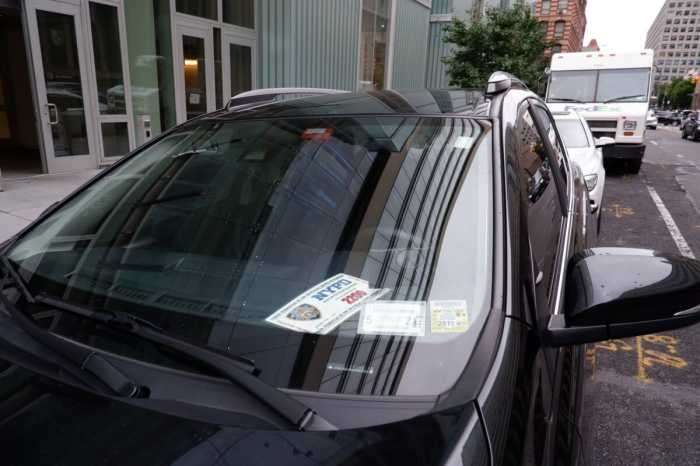Brooklyn councilmembers took the reins at Thursday’s regular full City Council meeting, introducing new packages of legislation relating to affordable housing, the monkeypox outbreak and more, and celebrating as their previously-written bills were approved by their colleagues.
The Council on Aug. 10 overwhelmingly voted to approve a package of bills on reproductive health and maternal mortality. Four of the seven bills in the package were sponsored by Brooklyn pols, and the newly-approved legislation will create education programs, force more transparency between hospitals and birthing patients, and more.
Here’s everything you need to know about the legislation your local representatives are seeking to codify into city law eight months into the current Council term.
Addressing monkeypox
The Council’s LGBTQIA+ Caucus, co-chaired by central Brooklyn Councilmember Crystal Hudson, collaborated on a package of bills that would help to contain the ongoing monkeypox outbreak in the city and formalize the city’s education and outreach process.
Hudson introduced the first of two bills, Intro. 0620, which would require the city’s Department of Health and Mental Hygiene to create a formal plan to stop the spread of monkeypox in the city.
If passed, the DOHMH would have to begin a public outreach and education campaign about the disease itself, how it is spread and how to prevent transmission, and where New Yorkers could get vaccinated and treated.
And that’s not all. Rather than allowing a one-size-fits all solution, the legislation requires the department to assess which communities in the city are most at risk and have the least access to resources — like vaccines — and tailor their plan accordingly, changing the location of vaccine sites and increasing their hours so more people could receive the shot.
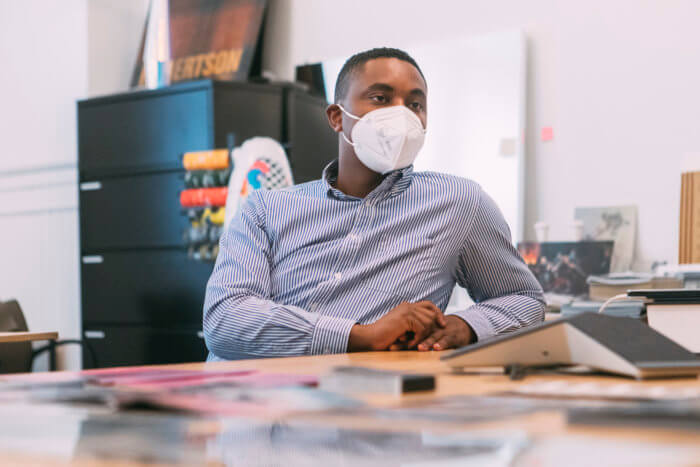
“This City has a record of doing too little, too late when it comes to curbing infectious diseases, and the communities who suffer most from our inaction are poor and low-income communities, marginalized communities, and communities of color,” Hudson said in a release. “Now, despite navigating the COVID-19 pandemic — from deploying mass testing sites and contact tracing procedures to guaranteeing comprehensive outreach and equal access to vaccines — we have failed, as a City, to apply the lessons we’ve learned over the last few years to our handling of the monkeypox outbreak.”
The second bill, Intro. 0637, sponsored by fellow caucus member and Central Brooklyn representative Chi Ossé, instructs the DOHMH to create a publicly-available dashboard of information on the number of diagnosed monkeypox cases, the number of vaccines and tests administered, and the total number of New Yorkers who have received the jab.
Like the dashboard the city created to track those same statistics at the start of the COVID-19 pandemic, the data would be regularly updated.
“New York City has an opportunity to effectively tackle this monkeypox outbreak, but the window is quickly closing,” Ossé said in a release. “We must learn from our two-and-a-half painful years dealing with Covid-19 — lessons in both epidemiology and equity — to get ahead of this crisis.”
Finally, the caucus introduced a resolution calling on the federal health department to increase the amount of available monkeypox vaccines and ensure the number of those vaccines sent to New York City reflects the number of cases there — noting the city has the highest rate of infection in the country but is not receiving a proportional number of shots.
Affordable housing and public land
Next up, North Brooklyn Councilmember Lincoln Restler — joined by Hudson, Ossé and Brooklyn reps Alexa Avilés, Jennifer Gutiérrez, Sandy Nurse, and Shahana Hanif — re-introduced a bill first debuted by then-Park Slope rep Brad Lander that would force the city to offer publicly-owned land to nonprofits and community land trusts before selling to private developers.
“We have an affordability crisis in our city,” Restler said in a statement. “Far too many city-owned lots have been misused to develop housing that is unaffordable to local residents. As rents continue to rise and more and more New Yorkers are struggling to get by, we need to act now to maximize truly affordable housing on every single publicly owned lot.”
The city often seeks to “dispose” of their publicly-held properties by offering them up for redevelopment, and 78% of redeveloped city-owned sites went to for-profit companies, according to Restler’s office, which tend to include fewer and more expensive units of affordable housing.
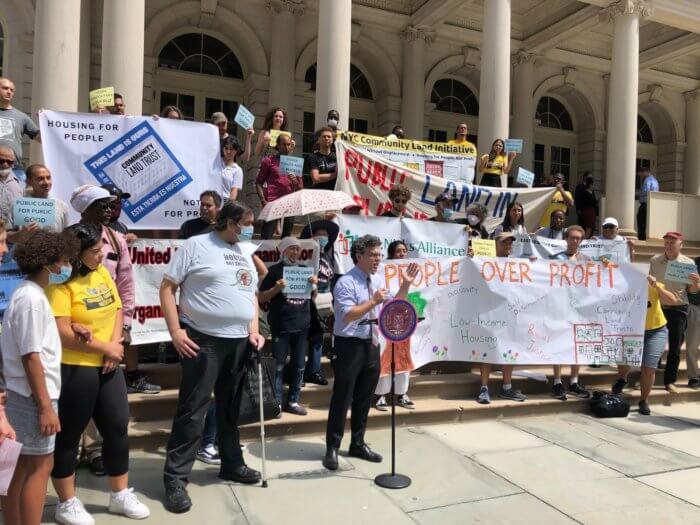
If passed, the bill would, hopefully, ensure that more “truly affordable” housing is built by nonprofits with roots in the community or community land trusts — nonprofits run by a group of residents.
The East New York Community Land trust has its eye on more than ten vacant lots in East New York that could be handed over by the city, said Brianna Soleyn, a member of the group, in a statement. In the interests of “democratic ownership of land,” the trust has spent two years talking to residents about what they would like to see built on those lots.
“However, at any point the city could issue an RFP and award these sites to a for-profit developer whose purpose is to extract profit,” Soleyn said in a statement. “The Public Land for Public Good bill could help end the city’s practice of giving away land to for-profit developers and support social control of our public land.”
Paid sick leave for gig workers
Hanif, who represents neighborhoods from Cobble Hill to Gowanus to Borough Park, is seeking to make working conditions for independent contractors — or gig workers — by mandating their companies provide paid sick leave.
Thousands of New Yorkers work as unsalaried gig workers for rideshare and food delivery services and at nail salons and construction sites. Most don’t have leave policies, and, if they have to take time off, are forced to lose out on pay.
“Growing up, the hardest working person I knew was my father,” Hanif said. “He worked long hours on construction sites, and because of discriminatory classification laws, he, like so many other immigrants, was unable to take a day off if he fell ill. This legislation will right that wrong for future generations.”
If passed, Intro. 0617 would also mandate paid “safe” leave, so workers could take time to deal with issues related to domestic violence or stalking — which is especially important for immigrant women of color, who face particularly high rates of domestic abuse.
“We are proud to support this effort that aims to rewrite the rules of the gig economy and guarantee protections to NYC’s essential workers,” said Ligia Guallpa, executive director of the Workers Justice Project. “The fight continues from our streets to city hall to transform these jobs into a profession that is well paid and that can better provide opportunities to live and work with safety, dignity and respect.”
Sanitation
Finally, Nurse, the chair of the Council’s Committee on Sanitation and Solid Waste Management, presented Intro. 0630, which would require the city’s sanitation department to install GPS trackers on street sweepers and maintain an website where the public could track and confirm street cleanings in their neighborhoods.


